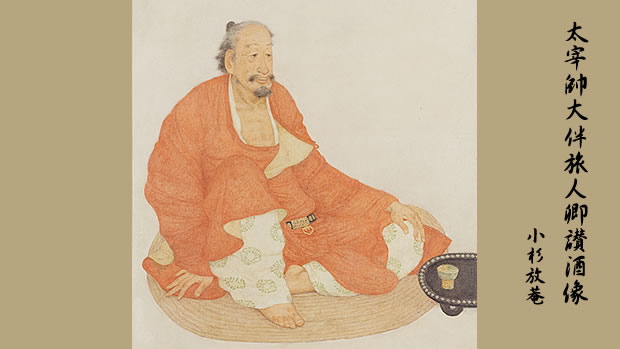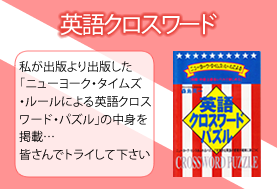
VOLUME-3
☆Lord Ootomo-no Tabito’s poem – another of the series:
酒の名を
聖と負せし
古昔の
大き聖の
言の宜しき
(太宰帥大伴卿の酒を讃むる歌十三首の一、巻3-339)
Sake-no nawo
Hijiri to ohoseshi
Inishiheno
Ohoki hijiri-no
Kotono yoroshiki

In the ancient times,
Some sot named the clear Sake
“Saint” of all the drinks.
Oh, what an apt name did he bring!
He, the Great Saint of all time!
(Vol.3-339)
Ootomo-no Tabito (Incidentally, the name Tabito literally means “Traveller”) was the Governor of Dazaifu Outpost Government Office, a strategically important position, but not necessarily a highest rank in the Central Government in Nara.
While he realized his status, but seemed to try and enjoy the life there and make most of the opportunity there, creating poem, reading books, associating with people. It was during his tenure there that he hosted a flambuoyant party in his mansion, commemorating the plum flowers flourishing there in January, year-730.
Plum flowers were highly valued among people, especially those of the Imperial Court, as the plum was imported/transplanted from the China Continent.
Tabito wrote an opening remark preceding the series of 32 poems sung by the attendees, and the remark was written in a classical Chinese poetry style.
We are today in year 2020, which is, in Japanese calendar, the 2nd year of Reiwa Era. Preceding the start of the new era (following the self-proclaimed abdication of Emperor for Showa Era), the government formed an ad hoc committee to consider the choice of a new name for the new era, and a new name, Reiwa, was recommended by the group of scholars, and the government decided on it.
Reiwa consists of two Chinese characters, Rei(令) and Wa(和)、and with the two together Reiwa is supposed to mean “Beautiful Harmony”, very apt name for this era, when Japan is supposed to pursue Peace and Accord on a global scale, hand in hand with all other countries. Japan is to conserve the beautiful nature it is endowed with over centuries. These two Chinese characters appear in that opening remark that Tabito wrote in Chinese style.
Mr. Nakanishi Susumu, the famous Japanese scholar, taking important posts relating to the study of Man-Yoh-Shuh, among all other responsibilities he assumes, is said to be the central figure in the recommendation on the choice of the name, Reiwa.
Myself, writing on this series of essays, “Journey…”, I relied on the information and fact-finding process introduced by Prof. Nakanishi, especially in his book, “楽しくわかる万葉集”(Tanoshiku Wakaru Man-Yoh-Shuh)(Publ. by Natsume-Sha).
Tabito is the father of Ootomo-no Yakamochi, the chief compiler/editor of Man-Yoh-Shuh, and these two poems, Vol.3-338 and 3-339, were Tabito’s make among others.
―――

● BILOG“MAN-YOH-SHUH”topに戻る





